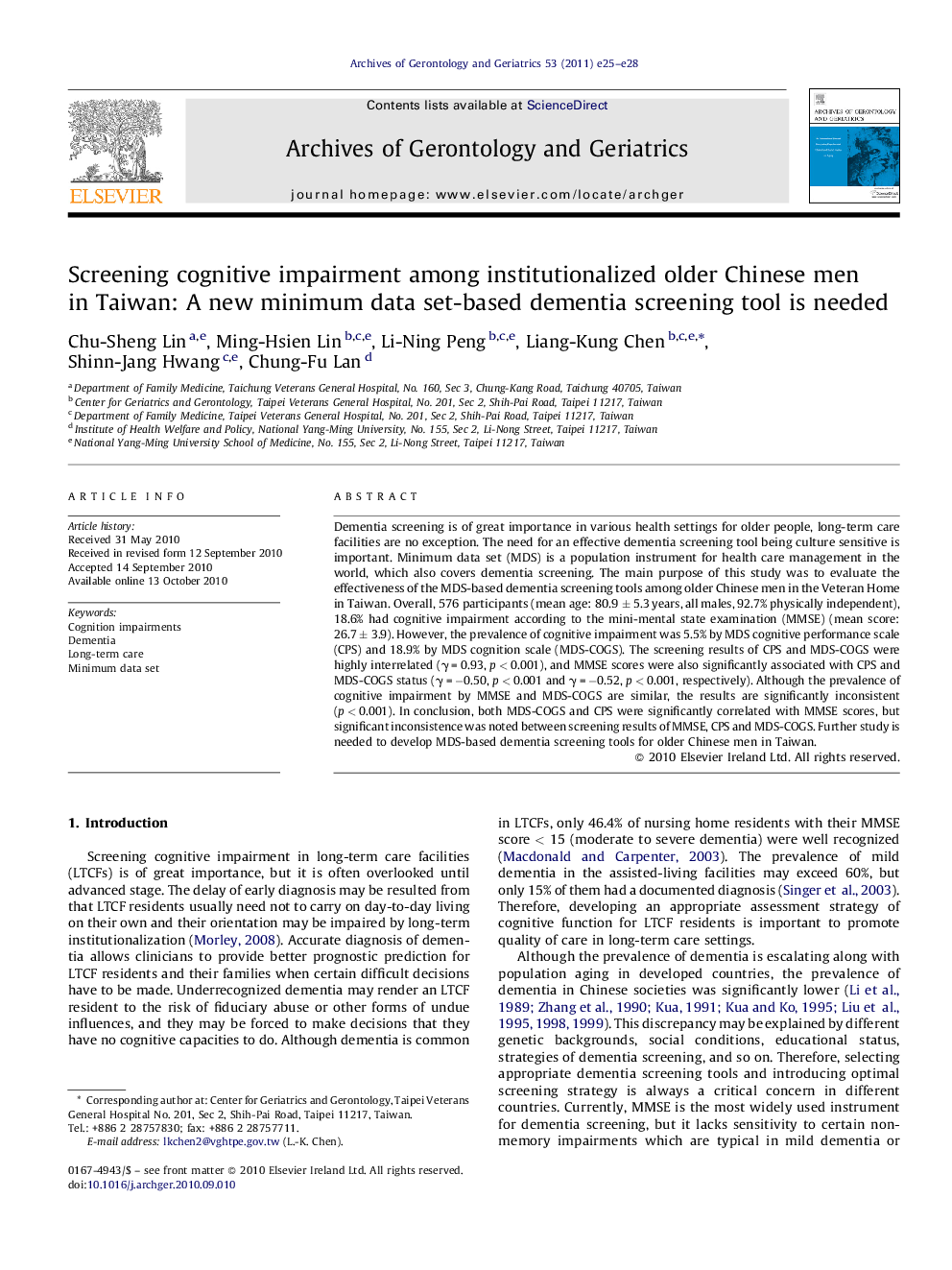| کد مقاله | کد نشریه | سال انتشار | مقاله انگلیسی | نسخه تمام متن |
|---|---|---|---|---|
| 1903062 | 1534454 | 2011 | 4 صفحه PDF | دانلود رایگان |

Dementia screening is of great importance in various health settings for older people, long-term care facilities are no exception. The need for an effective dementia screening tool being culture sensitive is important. Minimum data set (MDS) is a population instrument for health care management in the world, which also covers dementia screening. The main purpose of this study was to evaluate the effectiveness of the MDS-based dementia screening tools among older Chinese men in the Veteran Home in Taiwan. Overall, 576 participants (mean age: 80.9 ± 5.3 years, all males, 92.7% physically independent), 18.6% had cognitive impairment according to the mini-mental state examination (MMSE) (mean score: 26.7 ± 3.9). However, the prevalence of cognitive impairment was 5.5% by MDS cognitive performance scale (CPS) and 18.9% by MDS cognition scale (MDS-COGS). The screening results of CPS and MDS-COGS were highly interrelated (γ = 0.93, p < 0.001), and MMSE scores were also significantly associated with CPS and MDS-COGS status (γ = −0.50, p < 0.001 and γ = −0.52, p < 0.001, respectively). Although the prevalence of cognitive impairment by MMSE and MDS-COGS are similar, the results are significantly inconsistent (p < 0.001). In conclusion, both MDS-COGS and CPS were significantly correlated with MMSE scores, but significant inconsistence was noted between screening results of MMSE, CPS and MDS-COGS. Further study is needed to develop MDS-based dementia screening tools for older Chinese men in Taiwan.
Journal: Archives of Gerontology and Geriatrics - Volume 53, Issue 1, July–August 2011, Pages e25–e28